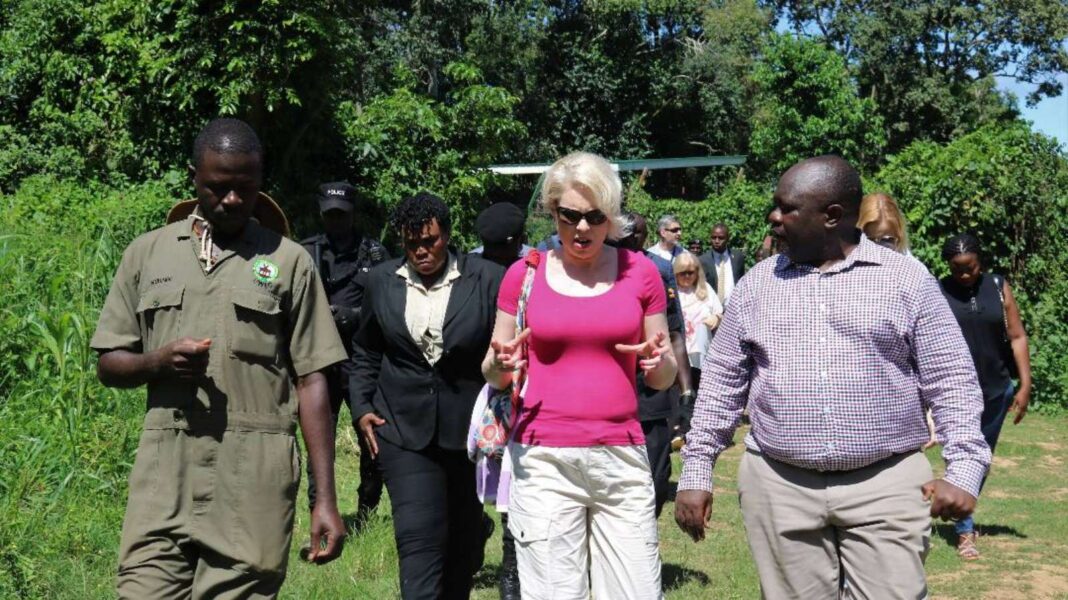By: B. S.
The visit of the President of the National Assembly, Urška Klakočar Zupančič, to core Africa is turning from comedy to tragedy. At home, we are somewhat used to the comical antics of the Speaker of the Slovenian Parliament – dancing on the red carpet, messing around in the radio studio, and her sense of fashion is quite unique. Definitely a modern stunning and brave woman, as her admirers and halflings drool over her outbursts.
During these days, UKZ tried to share some of her awesomeness and courage with the African continent. This attempt included a comedy about the adoption of a chimpanzee, which UKZ modestly named Urška, which is said to mean “energetic”, although no one knows in which language. Otherwise, UKZ and her newest bestie Mojca Šetinc Pašek showed the African hosts what a modern woman should look like, the former showing off her cleavage and a tattoo on her arm, and the latter with ripped jeans. What many Africans on Twitter characterised as a lack of diplomatic etiquette and an underestimating attitude towards the locals. But it was a comedy, followed by a tragedy.
It is tragic that the president of the Slovenian parliament did not take even an hour of time to learn about the more modern history of the country she is traveling to, at least on Wikipedia. During her visit to Rwanda, she said “We can learn from you how to promote women’s rights and empower women”, referring to the high percentage of women in the Rwandan parliament. The problem is how this situation came to be. A quarter of a century ago, one of the worst genocides in modern history took place in Rwanda. Between April and July 1994, the Hutu, the majority nation in Rwanda, carried out a genocide against the minority Tutsi. Between half a million and 800 thousand Tutsis were literally slaughtered, and in addition to them, an even greater number of “moderate” Hutus, especially politicians, journalists, military and police commanders, and judges who did not agree with the genocide. According to the basic plan, all the Tutsis (and of course all the Hutu “traitors”) were to be killed, which in the end did not materialise. So, they killed several hundred thousand victims, mostly men. Although women mostly survived the massacre, they were victims of mass rape, according to estimates by international organisations, this fate befell up to half a million women and girls there. A counteraction by the Tutsis followed, in which between 200 and 300 thousand Hutus were murdered.
The subsequent pacification between the two ethnic groups, of course, did not revive the victims of the massacres, and the country was left with a huge demographic hole, as there is a shortage of men. The only consequence of this is that with a lack of men, there is a higher percentage of women in various leadership positions, including in politics.
It is especially tragic that the consequences of the genocide seem to the president of the Slovenian parliament to be an example from which one could learn.

